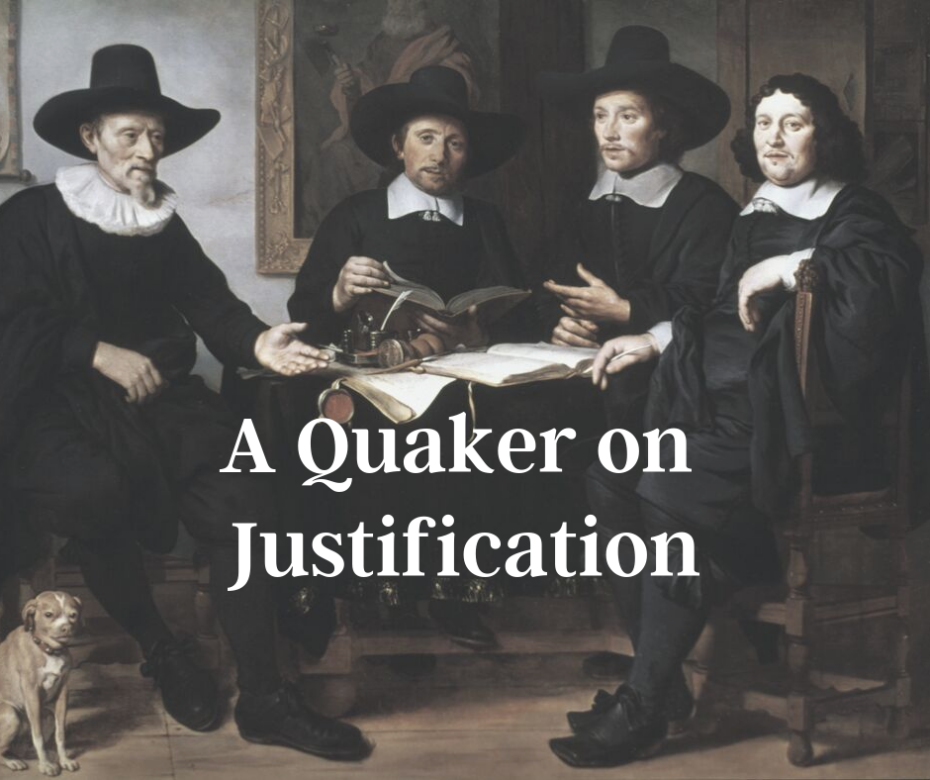I read everybody. For example, I was reading this blog on Scriptural authority from “Ramblings of a Country Preacher,” an independent Quaker minister. He is arguing that Quakers—and all Christians—must return to Scriptural authority. Overall, I agree with his position:
The perfect standard or Scriptural teachings have over time been consumed by the secular liberal teachings of progressive socialism. This progressive socialist doctrine has triumphed over the absolutes of the Scripture.
He argues that if your emotions or the teachings of the world conflict with the teachings of Scripture, then God’s Word should win:
Often, the world, our feelings, and/or our emotions direct us one way and God’s Word another. What our culture deems acceptable and what God says is acceptable often conflict. So why would we abandon the most important tool God has given us to understand how to live out our lives?
Instead of letting the world dictate its standards to you, you should evaluate the world’s teachings in light of the absolute standard of Scripture:
Most Christians do not know how to evaluate Christian ethics or conduct in the light of the Scriptures. Instead, they sit back and allow non-Christians or even atheists to dictate what is to be the ethical standard by which the followers of Christ are to conduct their spiritual lives. Non-believers who deny the authority of the Scripture have established the ethical standards for abortion, human sexuality, the role of the state, issues concerning the taking of life, bioethics, and even the environment. There are very few Christians who are willing to give a scriptural defense of the absolute standards of God’s written Word. It is time faithful followers of Jesus Christ speak the truth about Christians teachings.
I think that you, like most readers of this blog, would agree with those statements. We should all give, and be able to give, a defense of the truth of the absolute standards of God’s written Word.
Unfortunately, many (most?) Quakers do not take Scripture as any kind of authority in their lives. In the 19th century, a Quaker preacher named Elias Hicks began teaching that following the “inner light” or “the spirit” took priority over Scripture. He created a traumatic schism within Quakerism. Consequently, following that “light” has led liberal Quakers (called “Hicksites”) to leave Christendom altogether and to embrace a complete religious relativism. Not only do many not identify as Christians, but many also are not even theistic! (see here and here and here). In fact, a few months ago I witnessed an online debate over whether or not Satanists could be Quakers—and the people weren’t sure (but they did lean towards probably not)!
But when Hicks began preaching his doctrine, it provoked a response from Quaker preachers who affirmed a high view of Scripture. They said everything must be tested against God’s Word, even the (alleged) promptings of the Holy Spirit. That’s the debate I’m interested in and what led me to this blog. I want to understand how those Quakers balanced their high view of Scripture (bibliology) with their doctrine of the Holy Spirit (pneumatology). What they said might still be helpful.
However, while I enjoyed the blog’s stand on Scripture, I was saddened by this statement about justification:
Justification is not based on “cheap grace.” Justification is based on conviction of sin, acknowledgment of sin, confession of sin, acceptance of forgiveness of sin, and making an about-face away from sin.
What is the problem? This is an unbiblical definition of justification! So in the spirit of the blog, let me say that God has an absolute standard when it comes to how you are justified.
The Apostle Paul never said that we are justified by a conviction of sin, or by confession of sin, or by making an about-face away from sin (if that includes a change of behavior, then the author is teaching justification by works). Instead, Paul said we are justified by faith apart from works.
But to him who does not work but believes on Him who justifies the ungodly, his faith is accounted for righteousness (Rom 4:5).
After you are born again, God will deal with the sin in your life during the process of sanctification. You ought to be convicted of sin, confess your sin, and repent from sin. But faith in Jesus is the sole condition for having everlasting life. (Moreover, grace is not cheap—it is free!)
I don’t know whether the blog author is representative of what most conservative Quakers believe, or if he’s an anomaly. But I do know that Quakers in general (especially the liberals) do not believe in Jesus for eternal salvation, because most do not even believe in Jesus at all! Most Quakers are literally idolaters (in sharp contrast to the first “Friend,” George Fox). I urge them to come to Jesus, and Jesus only, for their salvation, because He is the way, the truth, and the life (John 14:6).
However, the blog’s point is well taken. Whether the subject is sanctification or salvation, make your standard the Word of God, not the word of the world!


